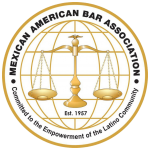
RESOURCES
Trust Administration
Trust administration refers to the trustees’ management of trust property according to the trust document’s terms and for the benefit of the beneficiaries after the settlor’s death. Many steps are required to safeguard effective administration. If a loved one has passed away and there’s a trust, you should arrange for a consultation so you can be advised as to what steps one should take. The role of a trustee comes with very specific duties that are both inherent and outlined within the trust document.
Below are some common tasks for a successor trustee and some are mandatory!
- Provide notice to persons entitled to notice;
- Clear title to trust real property;
- Inform the Assessor’s office that the owner of a property in a trust has died;
- Distributing trust assets;
- And there’s much more!
Please know that you can contact our attorneys at the The Law Offices of George Pacheco & Associates for a consultation to discuss your specific situation. The fee structure will also be explained and can be paid for from the trust if you are acting as the successor trustee.
Estate Plans & Living Trusts
Estate planning is the preparation of tasks that serve to manage an individual’s asset base in the event of their incapacitation or death. The planning includes the bequest of assets to heirs and the settlement of estate taxes. Every estate is different. There is no estate too small or too large to plan for. Our attorneys meet face-to-face with you to determine the best testamentary documents needed in your specific situation. Examples of documents we have experience in preparing:
- Revocable Living Trusts
- Non-revocable Living Trusts
- Wills
- Pour Over Wills
- Durable Powers of Attorney
- Advance Health Care Directives
- Property Trust Transfer Deeds
- And others!
Please contact our office for more information on obtaining a consultation regarding your estate plan!
Probate
Probate is the legal process of administering a person’s estate after their death. When a person passes, probate is not automatic. However, the legal process is also not always needed and in certain cases, probate legal proceedings can be avoided. In other situations, it is necessary.
Here are some instances where probate is needed:
- There is real estate owned by someone who died and no one else is left alive on title.
- There is money in the bank owned by someone who died, and the amount left in that account exceeds $150,000 or more.
- There is a business or other asset owned by someone who died and you cannot collect on those assets as the financial institution or other people are asking for Letters Testamentary or Letters of Administration.
Probate can be a complicated process, but can also be made very easy with the assistance of an experienced attorney. Our attorneys are able to explain the legal process in clear and understandable terms.
We offer our condolences if you have recently lost a loved one and need advice on where to begin. Rest assured, during our probate consultations, we discuss whether the legal process is needed for your specific situation and whether there are any alternatives to save you time and money. Contact our office today to schedule a consultation to discuss your situation.
Family Law
Our firm’s approach to family law cases is very client centric. Family law issues are sometimes some of the most physically, mentally and emotionally traumatic experiences for clients. It makes it much hard when you don’t have someone on your side, advocating for your rights.
Rest assured, when we first meet with our clients, we determine what their expectations are. This is true whether your case involves dissolution, child custody (or both), parental rights, retraining orders, or anything related. We then give the best-case-scenario outlook and the worst-case-scenario outlook based on our many years of experience. Experience is so crucial in family law cases. Sometimes knowing how certain judges decide can have a major effect on how a case is approached. Alternatively, sometimes cases do not need to go through extensive legal process to be resolved. Ultimately, our approach focuses on preserving and protecting you, your children, and your assets. Keeping your divorce and custody battle out of court is always preferred to minimize conflict and keep costs lower. However, we will not hesitate to aggressively fight for you in court, if that is what is needed.
Our office has extensive experience in the following matter, but not limited to:
- Dissolution of Marriage including division of assets and spousal support
- Modification of Spousal support
- Paternity Petitions
- Petitions for Child Custody and Child custody arrangements (legal and physical custody)
- Modifications of child custody and visitation
- Child custody evaluations
- Mediation
- Establishing Custody in California
- Division of Marital Assets, including Pensions and Retirement accounts.
Give us a call to discuss your family law case and how we can help you through the process. In meantime, here is a bit of information to help you better understand certain areas of family law.
Grounds for a Divorce in California
California is a “no-fault” state, which means the courts will grant a divorce if one spouse says there are irreconcilable differences justifying the dissolution of the marriage. No proof is required, and California courts do not care which spouse is at fault for the differences.
The courts don’t disregard fault entirely, though. For example, if your spouse abandoned the family or was violent, the court may consider those facts when dividing property or awarding spousal support. If your spouse spent money on gambling or an affair, a judge could use their discretion and order your spouse to reimburse you.
Divorce Laws
California has a few requirements you should know about before filing for divorce.
- At least one of the spouses needs to be a California resident for at least six months before filing for divorce.
- You must file for divorce in a specific county within the state, and at least one of the spouses must have lived in that county for three months before filing for divorce.
- Once you file for divorce, there is a mandatory six-month waiting period before it can be finalized.
California is also a community property state, meaning that the court considers all assets acquired during the marriage and before separation to be the property of both spouses and will need to be divided accordingly. If you accumulate debt during your marriage, it is also considered community debt.
Child Custody & Child Support
Per California law, the court has broad discretion in all matters relating to child custody, and the decisions made by the court are often determined by the child’s best interest. A skilled child custody attorney can help ensure that the court is scrutinizing your current and proposed parenting plans with a fair, unbiased lens, as well as navigate you through every step of mediation as you and your ex-spouse work together to hash out a plan that works for everyone.
California courts take a variety of factors into account when establishing child support, including parents’ after-tax income, healthcare and daycare expenses, current child support commitments, extraneous circumstances such as unexpected hardship, and more. A skilled child support attorney can help ensure that your circumstances are represented fairly, and that your interests are protected every step of the way.
In addition, even when a child support plan has been established, future complications can arise. Perhaps a parent is missing payments, or circumstances have changed dramatically and the previously established amount of child support is no longer adequate. We can walk you through any type of child support enforcement or modification procedure and guarantee that your rights, as well as those of your loved ones, are preserved.
As trusted and reputable child support attorneys in Montebello, our attorneys are qualified to assist you with all child support matters, including:
- Establishing child support
- Establishing child support credit
- Negotiating lower/higher payments
- The modification of child support payments
- Formal legal stipulations or agreements between parties
Legal Guidance for the Enforcement of Family Law Related Court Orders
Following a divorce or other family law case, the last thing you want is to end up back in court. Unfortunately, this may be exactly what you experience if you or your spouse fails to keep to the terms of your divorce decree or restraining order. Perhaps your former spouse or childs mother/father decides they no longer want to pay child support. Perhaps there was a change in income. Perhaps there was a change in circumstance where a child is no longer living with you or their other parent. Perhaps your child is older and wants to live with you full time. Perhaps your spouse no longer wants to pay spousal support.
No matter the situation, our attorneys have extensive experience handling cases involving court order enforcement including:
- Child custody and visitation
- Spousal support modification
- Protective orders
- Property division
- Child support
- Effects of Re-Marrying another spouse
Penalties for Violating a Court Order
Having a family law order is an effective way to ensure that all parties know their legal rights and obligations. However, challenges may still arise if one person willfully disregards the order.
Fortunately, there are laws in place that allow non-compliant parties to be held in contempt for their failure to abide by the family law order.
An individual who is found to be in violation of a court order could incur a variety of penalties, including:
- Property liens
- Withheld wages
- Incarceration
- Change of custody
- Payment of another’s attorney’s fees
- Seizure of tax refunds
- Suspension of their driver’s license
- Suspension of their occupational license
- Passport restrictions
Whether your ex-spouse is in violation of a divorce order, or he or she is accusing you of failing to comply, a skilled family law attorney can ensure that your rights remain protected throughout the legal process.
When facing a situation of a court order violation, it can be beneficial to have our judgment enforcement attorneys on your side. No matter your particular circumstances, we are ready to help. Not only do we provide reliable legal counsel, but we also give each client the personal attention and care that his or her case requires.


















